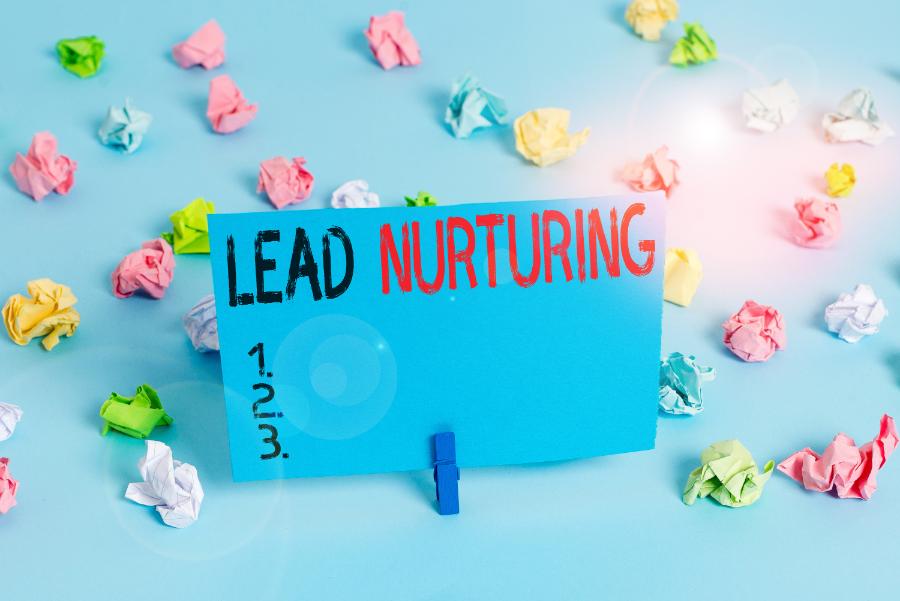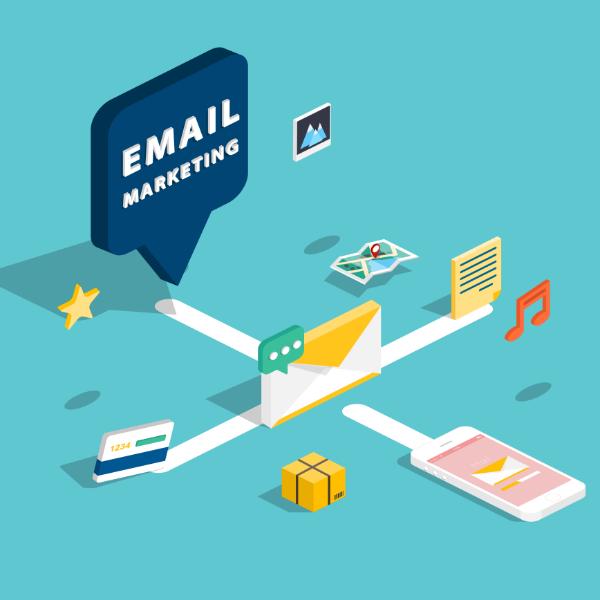
Lead nurturing requires a multi-faceted approach. Apart from email campaigns, it also includes direct contact with leads. Automated software can be very useful in this regard. Marketing automation tools allow marketers to learn more about their leads. In addition, Email marketing is still a powerful lead nurturing tool.
Marketing automation
Marketing automation is a powerful tool that can help you optimize your lead nurturing strategy. It can track behavioral data from multiple sources and prioritize your leads based on their estimated likelihood of purchasing. It also allows you to automate the creation of personalized content and emails based on their preferences. In addition to being a powerful tool for lead nurturing, marketing automation also helps you optimize your digital marketing. By leveraging the power of marketing automation, you can increase your ROI and close more deals. It is also a great way to align your sales and marketing teams, and fill your pipeline with quality leads.
The most successful lead nurturing strategies utilize data and analytics, which allow you to better understand what each lead wants and needs. By using data and analytics, brands can improve their understanding of the needs of buyers at each stage of the sales cycle. And, while email campaigns aren’t dead, outdated emails aren’t the best tools for lead nurturing.
While most organizations are aware of the benefits of marketing automation, many still view it as a new concept. The fact is, 27 percent of businesses still consider it a relatively new concept. However, if you implement the right marketing automation system, you’ll be able to measure the results of your efforts and make informed decisions. Marketing automation can help your team focus on the more important aspects of their strategy instead of spending hours doing repetitive tasks.
The right automation tool allows you to create a personalized experience for each lead. Using data from marketing campaigns and analytics, you can target specific leads with the right messages and content. In addition, you can track the performance of your campaign, and optimize your content in real time.
Marketing automation can also trigger workflows to send to your leads at the right time. These workflows can be set up to be sent right away. These actions allow you to remain responsive to your leads and show them you value their business. Lead nurturing is all about providing them with value and educating them about your products.
Marketing automation can improve engagement and drive your pipeline. Using it will allow you to create customized campaigns that move your leads through the sales cycle. It will also help you maximize your ROI from your marketing programs. Automation will allow you to eliminate the tedious tasks of sending one-off emails to leads and managing your lead nurturing strategy manually. Marketing automation will also enable your sales team to access content that your marketing team has created and optimized for each specific lead.
Marketing automation solves a major customer pain point: customers feel overwhelmed by information and experience a disjointed experience when trying to contact a company. Marketing automation can help you reduce friction, connect your teams, collect data in an understandable format, and prioritize behind-the-scenes tasks.
CRM
CRM is the foundational piece of lead nurturing, as it can help you identify which leads to nurture further. A successful lead nurturing program will ask a potential customer for additional information over time. This process is often referred to as progressive profiling. Typically, this process starts with high-level thought leadership content and progresses to a case study.
CRM can also help you track leads through a variety of methods. For example, you can track whether a prospective customer has read your blog, clicked on an advertisement, or purchased something. Then you can use data analytics to learn whether the overtures you made have been successful. By tracking data, you can create better buyer personas, test out different marketing campaigns and make more informed decisions.
Your CRM system should have tools that help you track, segment, and track lead activity. This will enable you to target your leads based on their preferences, and tailor your messages to their specific needs. Marketing automation can help you automate tasks and gain deeper insights on your target market. It can also help you distribute content and track customer behavior so that you can deliver personalized content when appropriate.
As your CRM system becomes more sophisticated, you should be able to create better personal relationships with your leads. For example, you can personalise your emails and web experiences to match the specific needs of your potential customers. Ideally, your content will also be tailored to the buyer’s needs, so that each communication will answer a specific question.
Having a clear timeline and measuring results are important for lead nurturing campaigns. This will help you assess the effectiveness of your campaign and make smarter decisions about what messages and content you should be providing to your leads. As you implement your lead nurturing strategy, remember to involve the sales and marketing teams in the process. By involving them from the beginning, you will ensure your marketing and sales teams align better.
Lead nurturing campaigns can take many forms, depending on the objectives of your business. For instance, you can create highly targeted campaigns by segmenting your audience by geography, product interest, or engagement level. Then, when you receive new leads, they will automatically be added to the right group.
Marketing automation is an important part of any lead nurturing strategy. It allows you to replicate the intimacy of one-to-one communication and enables you to manage the dialogue programmatically. It also allows you to monitor your prospects’ activity and trigger appropriate responses. You can also create automated welcome campaigns for new database subscribers. These welcome campaigns will greet your prospects and provide educational content.
Lead nurturing involves building relationships with prospects and extending their lifecycle by providing ongoing value. This method of lead nurturing helps you build brand loyalty and helps increase sales. It also improves the results of the leads you already have. According to a Demand Gen Report, nurtured leads generate 20% more sales opportunities.
Email marketing
An effective lead nurturing strategy incorporates emails into the customer lifecycle. The content of an email can vary based on the audience and where in the sales funnel the lead is. New leads, for example, may benefit from a welcome series of emails that includes an introductory video or access to a company blog. A first-time customer coupon code may also be useful.
 Emails should be carefully crafted to build relationships with your leads and to build trust. A well-written email campaign will contain several follow-up emails that are tailored to the lead’s needs and preferences. Follow-up emails should be timed accordingly to maximize their response rate. It is vital to test different types of emails to find out what works best for your audience.
Emails should be carefully crafted to build relationships with your leads and to build trust. A well-written email campaign will contain several follow-up emails that are tailored to the lead’s needs and preferences. Follow-up emails should be timed accordingly to maximize their response rate. It is vital to test different types of emails to find out what works best for your audience.
The goal of lead nurturing is to inspire and educate potential buyers throughout the entire buying cycle. Leads will feel more receptive to your marketing messages if you can build a relationship with them over time. Developing trust with leads will open doors for sales conversations that are more likely to lead to a sale.
Today’s consumer lifecycle requires more time than ever to make a purchase. Prospects need more time to educate themselves, become familiar with a product, and develop trust in a company before they decide to make a purchase. To take advantage of these changing consumer dynamics, your lead nurturing strategy must be sophisticated and intuitive.
Besides being an integral part of a lead nurturing strategy, email marketing is also a vital tool for maintaining and developing brand loyalty. With effective email marketing, you can stay on top of market trends and build customer loyalty at every stage of the buyer’s lifecycle.
The sales process can be long and difficult, and experienced marketers often find it difficult to move the right prospects through the funnel. The key is to understand the needs and pain points of your prospective customers and provide solutions to them. Effective lead nurturing campaigns will improve the quality of your leads and increase the number of hot leads. Additionally, engaged leads will increase customer retention and improve closing times.
An email marketing campaign can be automated or one-off. An automated campaign can send a series of scheduled emails to a list of prospects. This method is more sophisticated than blasting out emails and is proven to increase open and click-through rates. It can also educate and inform customers, keeping your brand at the top of their mind.





